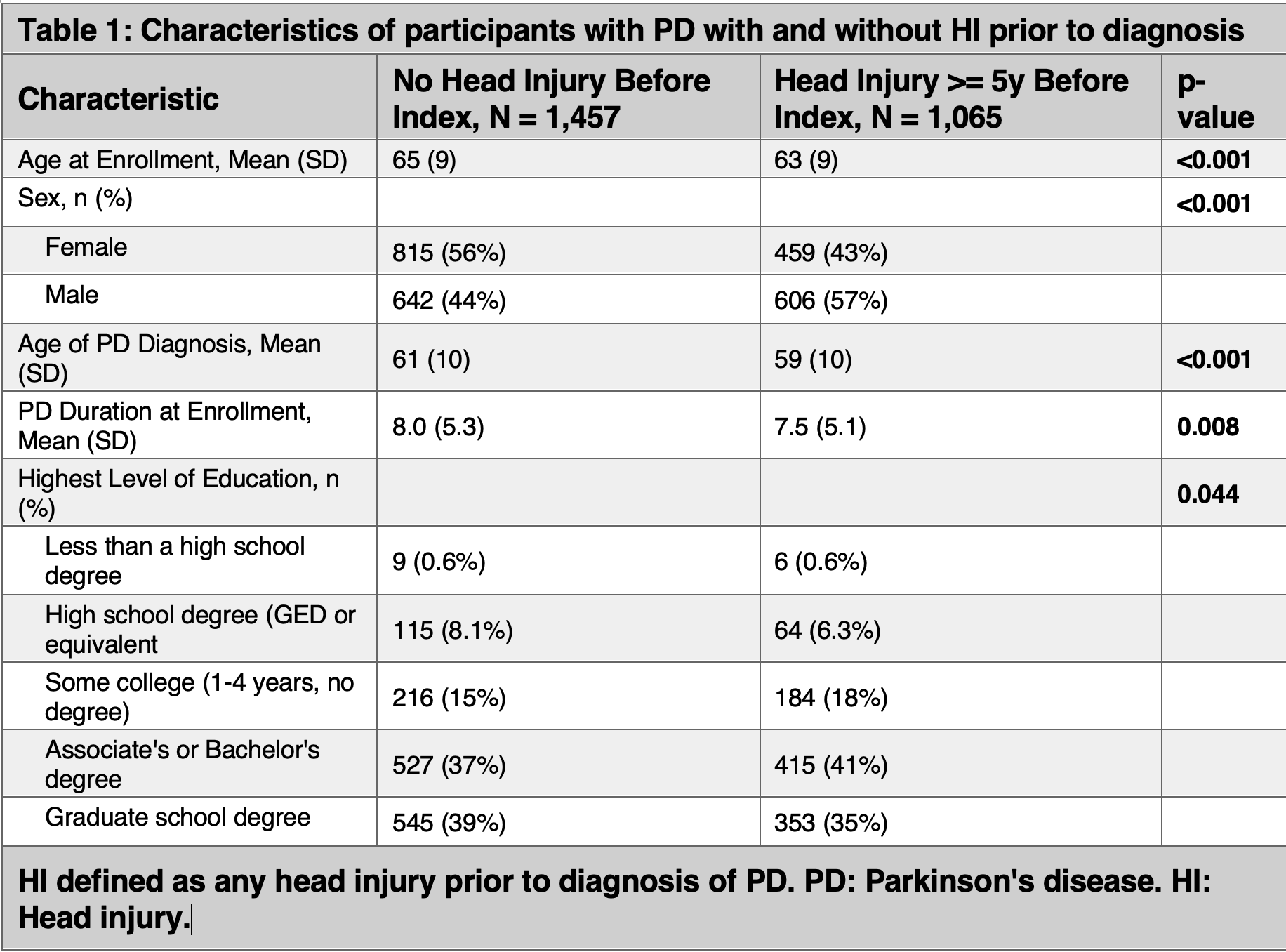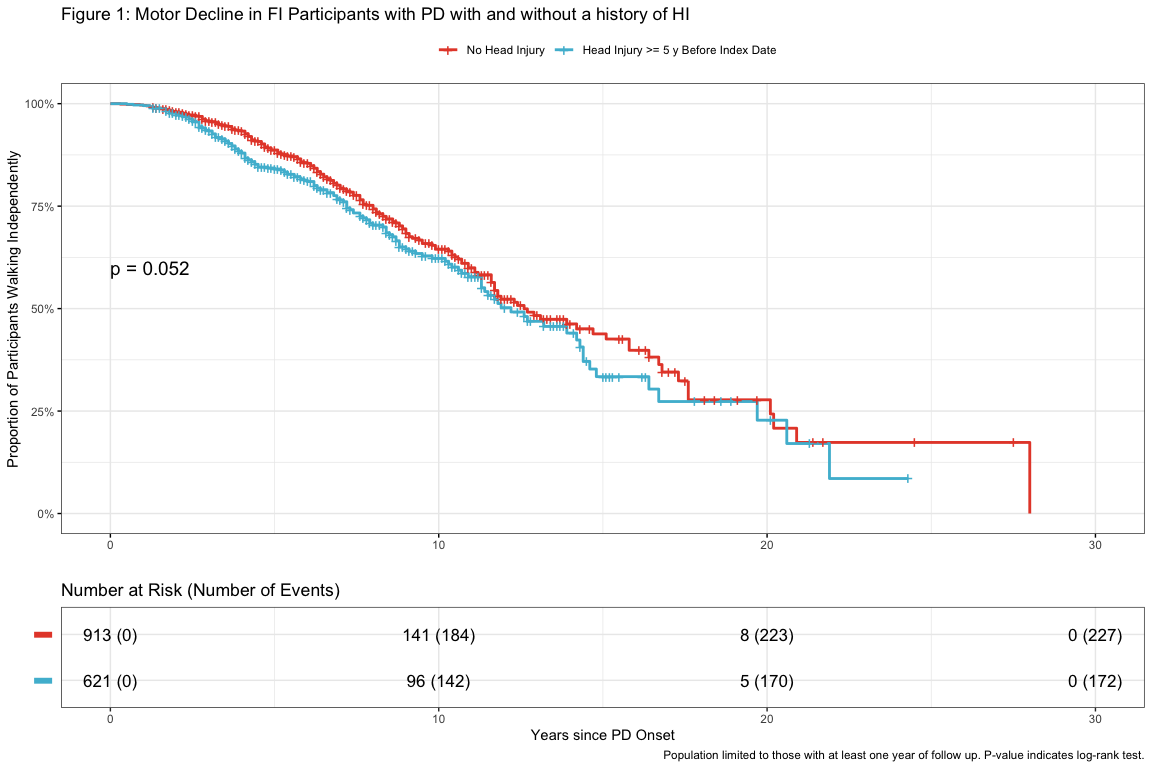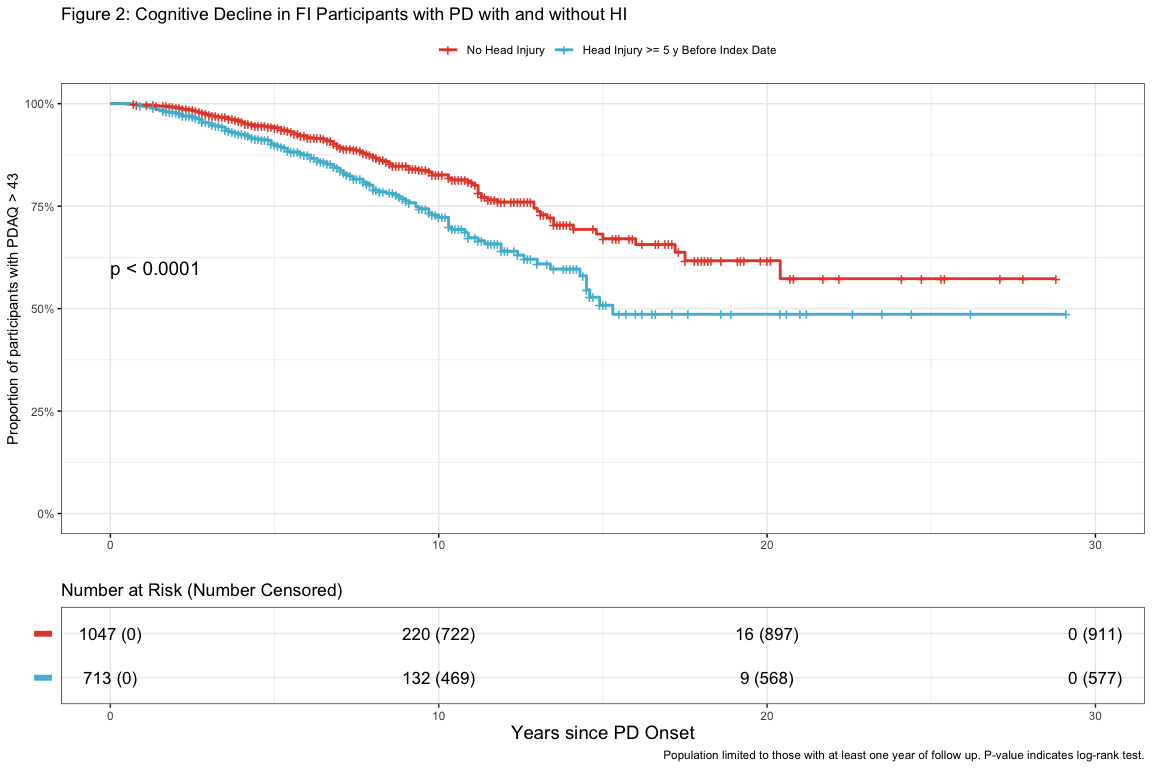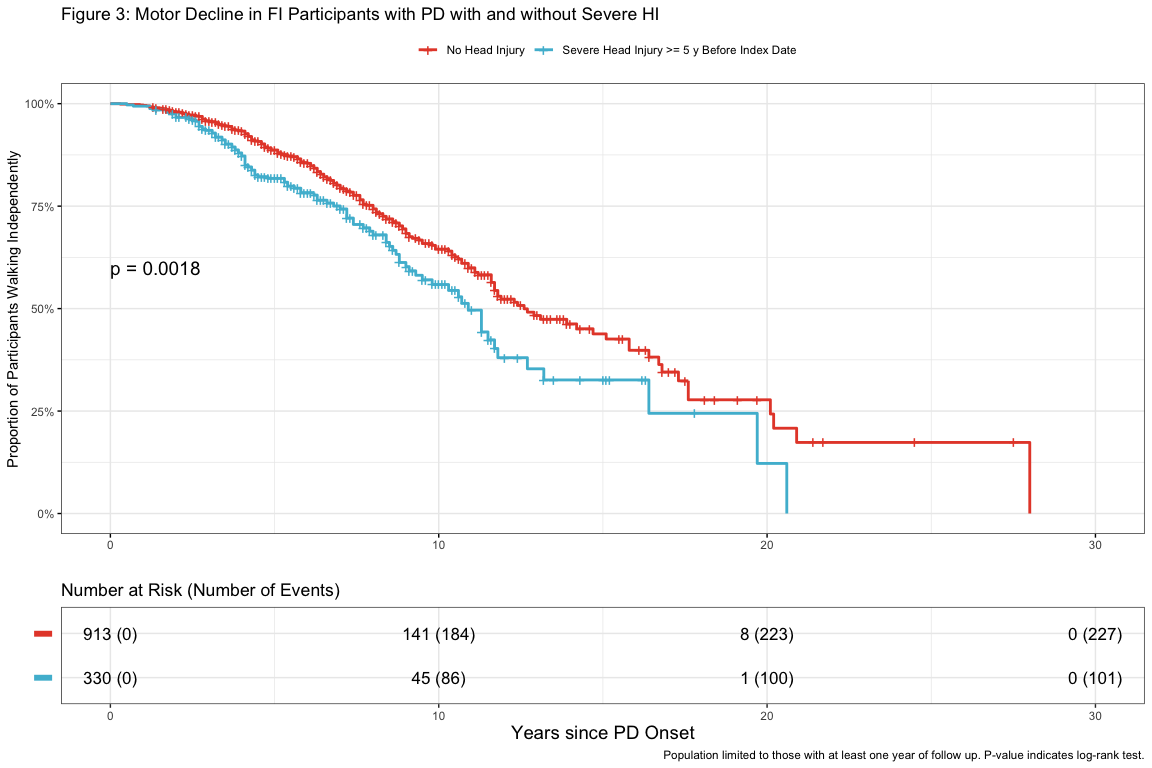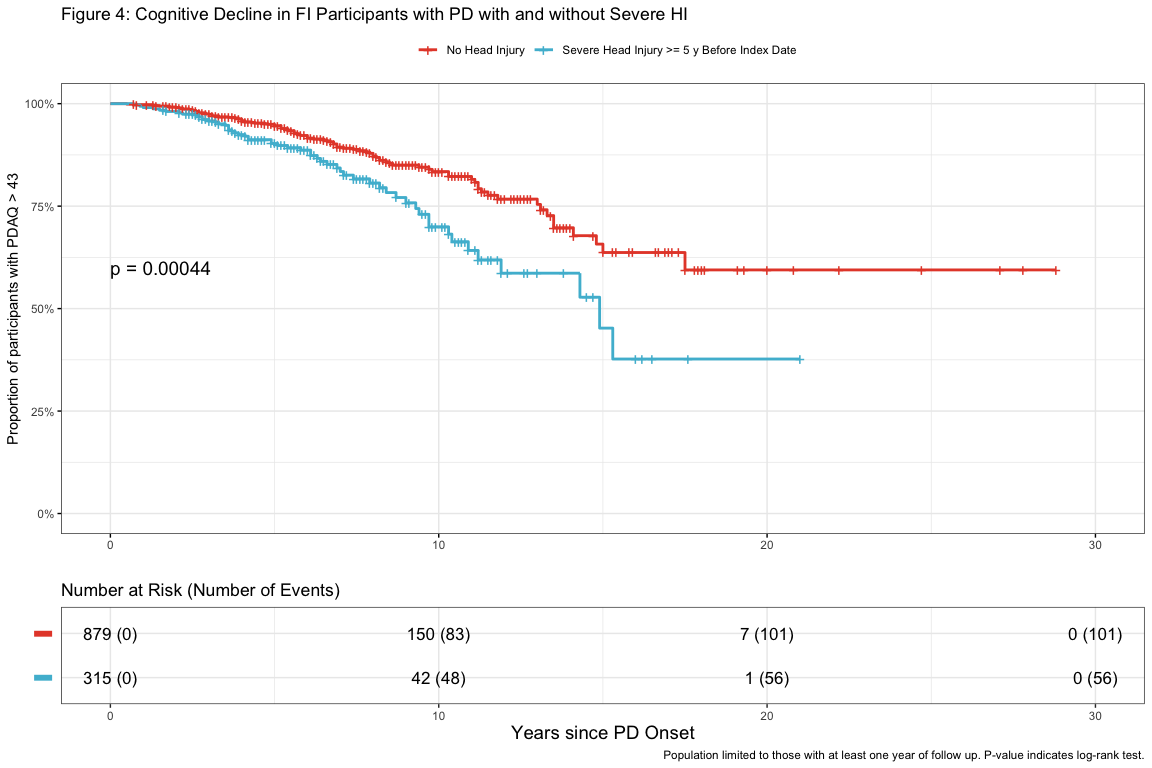Objective: To compare rates of self-reported cognitive and motor decline in people with Parkinson’s Disease (PD) with and without a history of head injury (HI).
Background: HI is a risk factor for PD development [1] but its relationship to PD progression is not established. Some studies suggest that HI is associated with cognitive or motor impairment in PD [2:4], though have not clarified whether injury prior to PD onset affects subsequent progression.
Method: We administered a questionnaire about lifetime history of HI to participants of Fox Insight (FI), a longitudinal, online study that evaluates motor and non-motor symptoms among people with and without a self-reported diagnosis of PD. We restricted our analysis to people with PD whose HI occurred at least 5 years prior to diagnosis (PD+HI) compared to people with PD and no HI prior to diagnosis (PDnoHI). Among people who were active in FI for at least one year , we used Cox proportional hazard models to compare time from diagnosis to development of (a) significant motor impairment (i.e. the need for assistance with walking) and (b) cognitive impairment (i.e. < 43 on the Penn Daily Activities Questionnaire [PDAQ]) in PD+HI compared to PDnoHI, adjusting for age, sex, PD duration at enrollment, and education. We further explored the role of more severe HI (i.e. involving fracture, seizure, or loss of consciousness). Data were censored at 30 years after PD diagnosis.
Results: Overall 2,522 people were included in this analysis [Table 1]. Forty-three percent reported HI, while 28% reported a more severe HI, at least 5 years prior to diagnosis. PD+HI had a faster onset of motor (aHR 1.24, 95% CI: 1.01 – 1.53, p = 0.037)[Figure 1] and cognitive impairment (aHR 1.45, 1.14-1.86, p = 0.003)[Figure 2] compared to PDnoHI. More severe HI was associated with even more rapid motor (aHR 1.44, 1.13-1.83, p = 0.003)[Figure 3] and cognitive (aHR 1.49, 1.11-2.0, p = 0.008)[Figure 4] decline.
Conclusion: HI prior to PD predicts more rapid motor and cognitive decline after PD diagnosis. The effect of more severe HI was more prominent than any HI. Antecedent HI may therefore contribute to adverse outcomes once PD develops.
References: 1. Goldman SM, Tanner CM, Oakes D, Bhudhikanok GS, Gupta A, Langston JW. Head injury and Parkinson’s disease risk in twins. Ann Neurol. 2006 Jul;60(1):65-72. doi: 10.1002/ana.20882. PMID: 16718702.
2. Schiehser DM, Filoteo JV, Litvan I, Pirogovsky-Turk E, Lessig SL, Song DS. Cognitive functioning in individuals with Parkinson’s disease and traumatic brain injury: A longitudinal study. Parkinsonism Relat Disord. 2016 Sep;30:58-61. doi: 10.1016/j.parkreldis.2016.05.024. Epub 2016 May 24. PMID: 27260791.
3. Joyce JM, Monchi O, Ismail Z, Kibreab M, Cheetham J, Kathol I, Sarna J, Martino D, Debert CT. The impact of traumatic brain injury on cognitive and neuropsychiatric symptoms of Parkinson’s disease. Int Rev Psychiatry. 2020 Feb;32(1):46-60. doi: 10.1080/09540261.2019.1656177. Epub 2019 Oct 21. PMID: 31631720.
4. Iacono D, Raiciulescu S, Olsen C, Perl DP. Traumatic Brain Injury Exposure Lowers Age of Cognitive Decline in AD and Non-AD Conditions. Front Neurol. 2021 May 12;12:573401. doi: 10.3389/fneur.2021.573401. PMID: 34054681; PMCID: PMC8153372.
To cite this abstract in AMA style:
E. Brown, M. San Luciano, S. Goldman, M. Korell, B. Contreras, C. Tanner. Head injury prior to Parkinson’s disease predicts faster self-reported motor and cognitive decline [abstract]. Mov Disord. 2022; 37 (suppl 2). https://www.mdsabstracts.org/abstract/head-injury-prior-to-parkinsons-disease-predicts-faster-self-reported-motor-and-cognitive-decline/. Accessed January 29, 2026.« Back to 2022 International Congress
MDS Abstracts - https://www.mdsabstracts.org/abstract/head-injury-prior-to-parkinsons-disease-predicts-faster-self-reported-motor-and-cognitive-decline/

